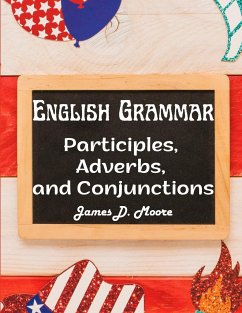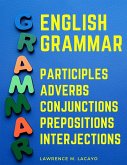The true or regular syntax of the English Participle, as a part of speech distinct from the verb, and not converted into a noun or an adjective, is twofold; being sometimes that of simple relation to a noun or a pronoun that precedes it, and sometimes that of government, or the state of being governed by a preposition. In the former construction, the participle resembles an adjective; in the latter, it is more like a noun, or like the infinitive mood: for the participle after a preposition is governed as a participle, and not as a case. To these two constructions, some add three others less regular, using the participle sometimes as the subject of a finite verb, sometimes as the object of a transitive verb, and sometimes as a nominative after a neuter verb. Of these five constructions, the first two, are the legitimate uses of this part of speech; the others are occasional, modern, and of doubtful propriety. The syntax of an Adverb consists in its simple relation to a verb, a participle, an adjective, or whatever else it qualifies; just as the syntax of an English Adjective, (except in a few instances,) consists in its simple relation to a noun or a pronoun. The syntax of Conjunctions consists, not (as L. Murray and others erroneously teach) in "their power of determining the mood of verbs," or the "cases of nouns and pronouns," but in the simple fact, that they link together such and such terms, and thus "mark the connexions of human thought."-Beattie.
Hinweis: Dieser Artikel kann nur an eine deutsche Lieferadresse ausgeliefert werden.
Hinweis: Dieser Artikel kann nur an eine deutsche Lieferadresse ausgeliefert werden.








